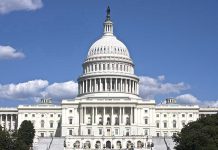
MSNBC’s firing of analyst Matthew Dowd after he blamed conservative leader Charlie Kirk for his own murder exposes a shocking escalation in media hostility toward patriotic Americans and free speech.
Story Snapshot
- MSNBC terminated Matthew Dowd after he publicly blamed Charlie Kirk for his own assassination.
- Dowd’s remarks sparked outrage among conservatives for deflecting blame and demonizing right-leaning voices.
- The incident highlights ongoing concerns over media bias and attacks on free speech and constitutional values.
- MSNBC’s response draws scrutiny about accountability and the limits of acceptable discourse in mainstream media.
MSNBC Analyst Fired Over Controversial Comments
On September 11, 2025, MSNBC parted ways with analyst Matthew Dowd after he made inflammatory statements in the aftermath of Charlie Kirk’s tragic assassination. Dowd publicly suggested that Kirk was responsible for his own murder because of his outspoken conservative views, a claim that immediately ignited backlash from viewers, media watchdogs, and constitutional advocates. Conservative Americans expressed outrage, arguing that such commentary dangerously shifts blame to the victim and further erodes civil discourse, especially at a time when partisan tensions remain high.
Dowd’s remarks were widely condemned for perpetuating the narrative that right-leaning figures bring violence upon themselves simply by expressing their beliefs. This incident brings to the forefront deep concerns about the mainstream media’s willingness to vilify conservative voices and minimize the importance of free speech protections enshrined in the First Amendment. As millions watched the network scramble to contain the fallout, questions arose about the accountability of media organizations when their commentators cross ethical lines.
Media Bias and Threats to Free Expression
The firing of Dowd underscores a broader pattern of bias and intolerance against conservative perspectives within dominant media outlets. Critics argue that blaming victims like Charlie Kirk for violence against them reflects a disturbing departure from journalistic integrity and constitutional respect. This approach not only undermines the right to free expression but fuels public mistrust in major news organizations. Many conservative viewers see this as further evidence of an entrenched “woke” agenda that seeks to silence dissent and marginalize traditional American values.
Media analysts point out that when mainstream outlets platform voices that rationalize political violence or censorship, it sets a dangerous precedent. Such rhetoric risks normalizing vilification of gun owners, faith-based communities, and advocates for limited government—groups often targeted by progressive policies. For audiences already frustrated by rising inflation, illegal immigration, and government overreach, instances like Dowd’s comments reinforce their perceptions of a hostile media landscape where conservative values are routinely attacked.
Public Response and Calls for Accountability
In response to the controversy, MSNBC issued a public apology and stated that Dowd’s comments were “unacceptable,” reaffirming their commitment to maintaining professional standards. However, critics question whether this action goes far enough to address systemic issues of bias and double standards in political coverage. Many conservative leaders and ordinary Americans are demanding greater scrutiny of media conduct and urging networks to uphold principles of fairness, respect, and constitutional rights. The incident is now serving as a rallying point for those who want accountability in journalism and an end to rhetoric that endangers free speech and public safety.
'Unacceptable': MSNBC Analyst Michael Dowd Fired After Blaming Charlie Kirk for His Own Murder https://t.co/KaB8pzkkW2
— ᴄʜʀɪsᴛᴏᴘʜᴇʀ ᴀʀɴᴇʟʟ (@MrChrisArnell) September 12, 2025
As the story continues to unfold, the firing of Dowd has sparked a renewed debate about the boundaries of acceptable discourse and the responsibilities of news organizations. Conservatives nationwide are watching closely to see whether this event marks a turning point in how mainstream media treats those who champion constitutional values and traditional principles—or whether it is merely a fleeting response to public outcry. The lasting impact of this controversy will depend on whether media outlets choose to learn from the incident and restore integrity to their coverage of America’s political landscape.
Sources:
RESAS-D5-3-Stakeholder-Analysis-final.pdf


















